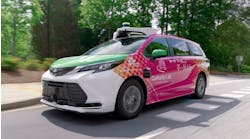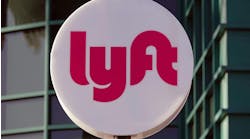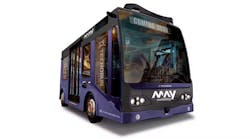NCDOT releases report on CASSI autonomous shuttle pilot program at UNC Charlotte
The North Carolina Department of Transportation (NCDOT) released a report that provides the agency’s conclusions about the Connected Autonomous Shuttle Supporting Innovation (CASSI) autonomous shuttle pilot program at the University of North Carolina at Charlotte (UNC Charlotte). The program was piloted in the last half of 2023 on a 2.2-mile, six-stop route that connected the main campus LYNX Blue Line light-rail station, Greek Village, dormitories, parking, academic buildings and the Popp Martin Student Union.
“The pilot at UNC Charlotte featured the most complex testing environment for the CASSI program to date," said Sarah Searcy, senior advisor for innovation with NCDOT's Integrated Mobility Division (IMD). “Through strong partnerships and by collecting feedback from the public through surveys and engagement events, NCDOT has developed robust analyses, findings and lessons learned on low-speed automated shuttles with connected vehicle features that help guide how the technology can best be used now and evolved to better meet the needs of all riders."
NCDOT says IMD's work with the CASSI program leverages the work of the department’s Aviation, Integrated Mobility and Rail divisions to create a multimodal transportation system that improves the movement of people and freight through the Advance Mobility NC initiative.
The final report compares the findings from the pilot at UNC Charlotte to the pilot in Cary's Fred G. Bond Metro Park in Cary, N.C. The Cary pilot ran from March to June 2023 and used the same vehicle and operator.
Some of the report's key findings from the UNC Charlotte pilot are:
- The shuttle's technology needs to advance further to usefully meet the demands of a university campus and the expectations of its community members.
- The shuttle's technology is not ready to be used as a conventional transit service for a variety of reasons, including the lack of full vehicle automation, requirement of an onboard attendant to ensure correct and safe movement of the vehicle and interaction with the environment and the need for automated accessibility features such as an automatic wheelchair ramp, securement system and/or audible stop announcements and instructions.
- While some community members appreciated being able to experience and support new technology through the pilot, most were choosing other options to reach their destinations on campus, whether due to comfort, convenience, reliability or some other factor.
- The shuttle's slow speed or delays contributed to the lower performance of the shuttle compared to conventional transit options. Those delays came about due to times when the attendant needed to troubleshoot problems, manually operate the shuttle or take the shuttle on a less direct path between destinations.
- Making sure the public is involved in the decision-making process about automated vehicles in their communities is important to success.
NCDOT says the IMD is exploring new options for the next set of pilots under the CASSI program.
The pilot at UNC Charlotte was CASSI's fifth deployment since 2020. NCDOT funded a separate research project to study the pilot conducted by UNC Charlotte faculty and students. The research team equipped the shuttle with their own sensors and technology to evaluate the shuttle's operational and safety performance on campus. The research team also collected an expanded set of surveys to capture the perceptions of shuttle and non-shuttle riders. Findings from the complementary research will be available in a separate technical report later this summer.
To read the report and learn more about the project's findings, click here.





